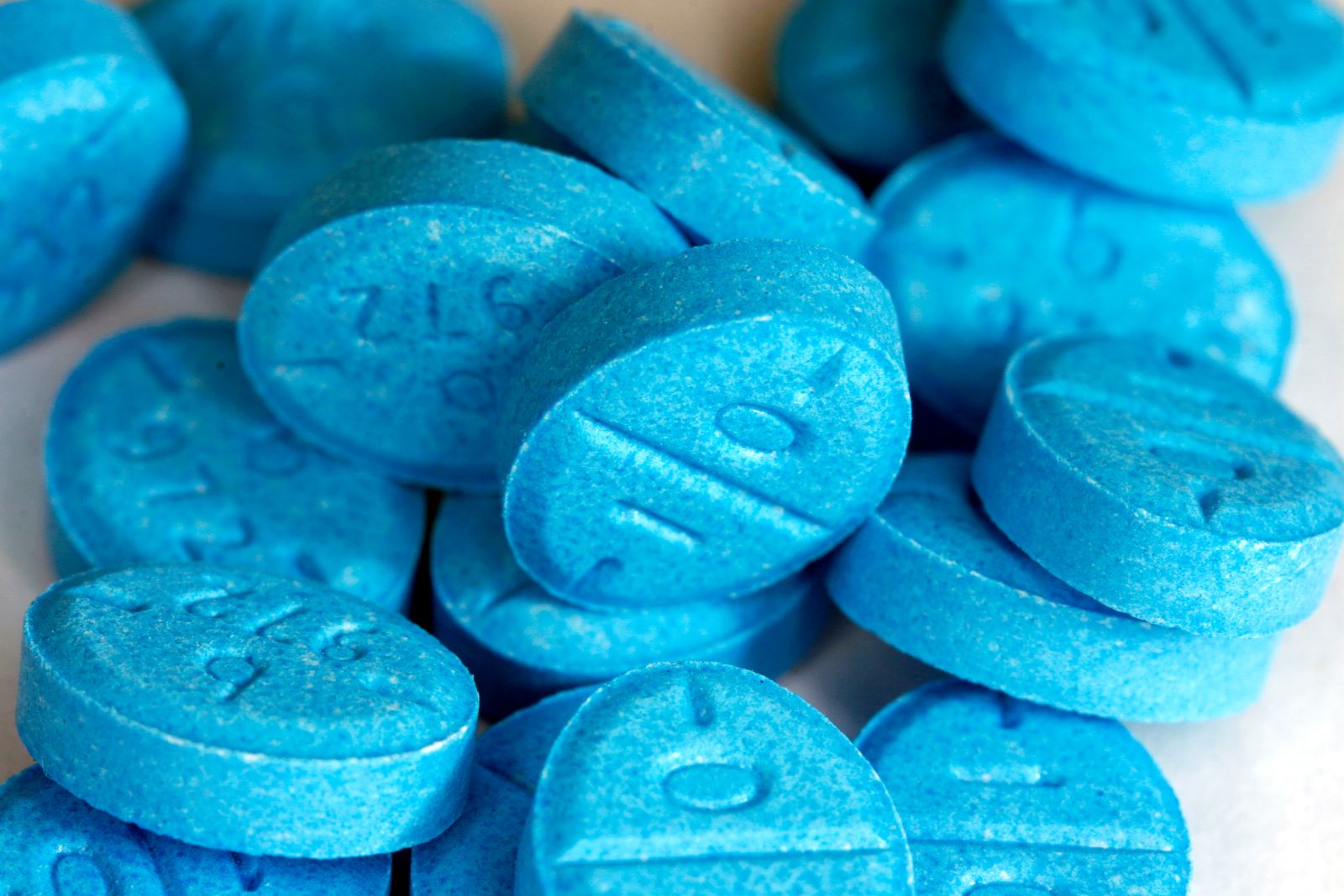Table of Contents
Understanding the Blue Adderall Pill
The blue Adderall pill is a commonly prescribed medication aimed at managing symptoms of ADHD. Known for its ability to enhance focus and concentration, this blue pill, available in various dosages like 10 mg, has become a go-to solution for many. However, with its benefits come significant risks. The potential for abuse is high, as individuals may misuse it for its performance-enhancing effects rather than its therapeutic purpose.
Despite its legitimate uses, the blue Adderall pill can lead to dependency. It’s crucial to recognize the signs of misuse and addiction. Understanding the risks associated with this medication, such as heightened blood pressure and potential heart issues, is essential. Awareness and education are key to using Adderall safely and effectively, ensuring it serves as a helpful tool rather than a harmful crutch.
Adderall® is one of the most common medications prescribed to help with the symptoms of ADHD. Unfortunately, this means it’s also one of the medications that’s most widely available for people who are looking to abuse drugs, boost their school or work performance, or who are looking for an affordable high. This also means that the blue Adderall® pill [1], and other preparations of Adderall®, are common targets for abuse, especially among teenagers.
One of the hardest things to deal with when it comes to Adderall® and drugs like it is that addiction, and using the medication properly for it intended purpose, can often look similar. Also, some of the people most likely to develop an addiction, are also the people who could probably benefit from the medication if it were used and prescribed properly.
Adderall® is also a little different from other drugs that are commonly targeted for abuse. Most of the time, when people are addicted to Adderall®, they see performance increases instead of decreases. The enhanced energy and ability to concentrate that come with Adderall® use can also mean that a different population is more likely to abuse this drug compared with other substances of abuse.
People who are high performers, who excel in high-stress situations, who take on a lot of extracurricular activities, and who are under a lot of pressure to succeed may be more likely to choose Adderall® as a drug of abuse compared with other population groups. This can be especially true when speaking of teenagers.
Among teenagers, Adderall® is one of the easiest drugs to get, the easiest to hide the possible signs of addiction, and one of the hardest addictions to manage.
Below, we’ll discuss what you need to know about the blue Adderall® pill, why it’s so often targeted for abuse among high-achievers, and how you can get help for yourself or a loved one if you’re worried about an addiction.

What Are the Risks & Side Effects Of Taking the Blue Adderall® Pill?
There are two types of Adderall® that come in blue pills, one is the 7.5mg dose, and the other is the 10mg dose. There are also shape differences between the two. The 10mg pill is round, while the 7.5mg pill is an oval.
Knowing what dose of Adderall® you’re taking is important not just for taking the prescription properly, but also for preventing overdose.
If you are addicted to Adderall®, knowing what dose you were taking, and how often you were taking it, can help you and your medical care providers create a plan for how you can safely overcome that addiction.
While Adderall® can be safely used to manage the symptoms of ADHD and Narcolepsy, it’s also a schedule 2 drug, which means that there is a high potential for abuse among users.
This brings us to the first risk of taking Adderall®, there is a high potential that you will become addicted to the drug.
Addiction can happen even when Adderall® is taken as prescribed, but it’s much less likely. Most of the time people who become addicted take more Adderall® than was prescribed, take it more often that was prescribed, or take Adderall® without any prescription at all.
Since Adderall® is known as a ‘study drug’ among both high school and college students, high achievers and students who are under a lot of pressure to succeed in school may be especially vulnerable to Adderall® addiction.
Unfortunately, since Adderall® is a stimulant, it doesn’t just magically increase your ability to concentrate. This drug, and other drugs like it, have widespread effects on your brain and body and come with a range of side effects, some of which can be dangerous.
Short-term side effects of Adderall® can include:
- Racing heart
- High blood pressure
- Anger
- Restlessness
- Irritability
- Dry mouth
- Sleep problems
- Diarrhea
- Constipation
- Weight loss
- Hair loss
- Muscle twitching
- Changes in sex drive or erectile dysfunction
More serious side effects that require medical help can include:
- Heart problems
- Aggressive behavior
- Seizures
- Blurred vision
Sudden death is also possible, especially with high doses of Adderall®, or in people who have a pre-existing heart condition who use the drug.
In addition to these Adderall®-term or acute side effects, Adderall® also comes with a range of long-term side effects [2] that are serious and concerning, including but not limited to:
- Stunted growth
- Heart problems
- Mental health disorders
- Liver and Kidney problems
- Addiction
Additionally, there are some less well-studied, but still concerning reports that long-term Adderall® use may be linked with sexual dysfunction and developing dementia in some patients.
Withdrawal Symptoms & Timeline
There are a lot of reasons why you might have to stop taking blue Adderall® pills, including if your doctor wants to try a different medication or wants to change the dose or preparation of Adderall® you’re currently taking to see if you get better results from something else.
If you’re addicted to Adderall®, the only way to overcome that addiction is to go through withdrawal.
That said, no matter how uncomfortable the withdrawal turns out to be, it can help to be prepared and to know what to expect ahead of time.
Having withdrawal supplies, like easy-to-eat and make foods, comfort foods, and hydrating beverages including Gatorade, juice, and other electrolyte supplements can also make a big difference in how you feel before, during, and after withdrawing from blue Adderall® pills.
That said, you should still be prepared for a certain amount of discomfort from withdrawal. Common symptoms of Adderall® withdrawal include [3]:
- Agitation
- Depression
- Irritation
- Insomnia
- Restlessness
- Excessive tiredness
- Extreme fatigue
- Muscle aches
- Nausea
- Headaches
- Slow heartrate
- Adderall cravings
- Difficulty thinking
- Difficulty concentrating
- Difficulty making decisions
- Vivid dreams
- Increased appetite
In some cases, the mental health consequences of Adderall® withdrawal may be severe and can include thoughts of suicide or self-harm. If either of these thoughts occurs it’s important to get medical attention as soon as possible.
Unfortunately, it can be difficult to predict who will or won’t get severe depression as a symptom of withdrawal. However, people with a history of mental health disorders may be more prone to this symptom.
The good news is that depression associated with withdrawal is usually temporary and will resolve soon after the primary symptoms of withdrawal pass.
Typically, Adderall® withdrawal starts within a few hours of your last dose and can last between three days and several weeks, with the most severe symptoms of withdrawal presenting early, and slowly easing throughout the remaining time.
The longer you have taken Adderall® before withdrawing, and the higher your dose before you stopped, the longer and more severe your symptoms are likely to be.
In some cases, anti anxiety medications, antidepressants, or other medications may be prescribed to help you manage the symptoms of withdrawal.
How To Know If You’re Addicted to Adderall®
Knowing that you have an addiction is half the battle when it comes to getting over that addiction.
Here are some of the most common signs and symptoms of Adderall® addiction.
Remember that proper use of Adderall® for ADHD may also cause some of these feelings and symptoms. Talk to your prescribing doctor if you’re concerned about addiction, but still using Adderall® as prescribed.
- You take more Adderall® than prescribed
- You take your medication more often than prescribed
- You feel like you need to take more medication ahead of tests, presentations, or periods of high stress
- You feel like you’re more yourself when you take the medication (also common with proper use)
- You’ve taken Adderall® to avoid sleeping
- You’ve taken Adderall® to boost your performance, or so that you could manage more in your day than typical
- You take Adderall® even though it makes you anxious
- You crave Adderall® even though you don’t like how it makes you feel
- You’ve bought Adderall® from an illegal source
- You’ve gone to more than one doctor to get more than one prescription for Adderall®
- You spend a lot of time thinking about Adderall®
- You have hoarded more Adderall® than you really need
- You have considered or have asked friends or family for their Adderall® prescription
- You double up on your Adderall® dose when you need an emotional or productive boost
Adderall® use can be sneaky. If you’re worried someone in your life might be abusing Adderall®, it’s a good idea to talk to them about it, and specifically to talk about the reasons you’re concerned and what you think the drug is doing when they take it.
Need Help For An Addiction? Get the Help You Deserve
Getting addiction treatment can be challenging, especially when it comes to getting addiction treatment for teenagers addicted to the Blue Adderall® pill.
One of the best ways to help Teenagers get over an addiction and back to their normal lives, and normal selves, is to work with BasePoint treatment center to get teen-focused care in a controlled environment where they can’t just seek out the drugs from another source.
At BasePoint, we can help teens identify the causes of their addiction utilizing a free ADHD assessment, Then we make helpful adjustments in their lives and schedules, and provide a safe and healing place for them to process their emotions and the pressures that might have led to their addiction in the first place. We accept many major insurance providers such as Aetna, Cigna, and UnitedHealthcare. We also offer a multitude of payment options such as sliding scale fees, and financing for treatment. Our goal is to make treatment more accessible, and we have the ability to holistically treat many teenage disorders including teen anxiety disorders, ADHD, and depression in teens. For more details, feel free to reach out to us today.
Get Your Teen The Help They Need to Heal & Thrive
Contact UsSources:
- [1] Drugs.com. (n.d.). AD 1 0 pill (blue/round) – pill identifier. Retrieved from https://www.drugs.com/imprints/ad-1-0-1131.html on 2023, Feb 27
- [2] Pearson, S. PharmD. (2021, December 14). GoodRx. What Are the Long-Term Effects of Adderall? Retrieved from https://www.goodrx.com/adderall/long-term-effects-of-adderall on 2023, Feb 27
- [3] Osborn, C. Verywell Mind. (2022, December 1). Adderall withdrawal: symptoms, timeline, and treatment. Retrieved from https://www.verywellmind.com/adderall-withdrawal-symptoms-timeline-and-treatment-4177486 on 202e, Feb
Related Articles
- Does Alcohol Thin Your Blood? | Learn About Alcohol & Health
- Xanax® and Alcohol | The Dangers of Mixing Xanax® and Alcohol
- Antidepressants and Alcohol | Should You Mix These Substances?
- Alcohol & Drug Rehab for Teens in Dallas, TX
- Relapse Prevention Program & Therapy | BasePoint Academy
- Dual Diagnosis Treatment Center for Teens and Adolescents in Dallas, Texas



